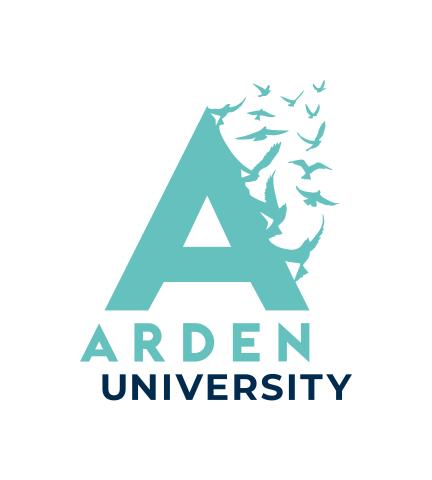
Why is collegiality crucial and how can we foster it?
Academics are often not the easiest colleagues. Teaching, conferences and regular meetings require social ability, but for many, a large part of academic life involves hard, solitary work. Researching in archives and libraries, writing complex papers that require a lot of thought, reviewing others’ work or marking student papers are often activities that require little interaction. This has all gotten even more difficult since Covid-19 has forced us all to spend a good part of two years within the confines of our own homes.
On some level, we could ask ourselves if it even matters. The modular structure of education makes it very easy for specialists with little contact with the rest of the department to deliver excellent classes for students. Email, virtual learning environments, intranet pages and the occasional meeting or conversation on Teams or Zoom can be sufficient to ensure that everyone knows what the rest of the department is up to.
However, this is a very short-sighted view. Sure, classes get taught, degrees get awarded and research gets done, but none of this at quite the same level as it could be. Here, I outline some of the reasons why collegiality is so crucial for universities and give some suggestions on how it can be fostered.
Why do we need collegiality?
Mental health
Especially for junior academics, there are many things to worry about: is my teaching good enough? Is the high failure rate on this module my fault? Should I write more papers? Will this revision finally be accepted? Do I focus on the right aspects of the job? Because of the nature of the academic job market and the fluctuations that come with it, lecturers often move to a new city (sometimes country) in order to start a position and might not have a network of friends and family around them. Friendly colleagues can give assurances and support to cope with any of these problems.
Serendipity
Conversations over a coffee or a beer or chats with friendly colleagues in the staff kitchen contribute a level of serendipity that can lead to all sorts of unplanned solutions. A lecturer might talk about problems he has with a certain class, and the other lecturer could come up with an example of how she solved a similar dilemma years ago. A researcher could complain about the difficulties she is having getting hold of a certain data set, and her colleague could remember a friend from another university who has undertaken a similar study.
Mutual support
Staff who like each other are also easier to manage. Motivating lecturers to help a struggling colleague with marking or teaching is easier when they know and like that colleague. It is also easier for the manager to get an understanding for inconsistencies in the workload, for example when a colleague looks after their elderly parents.
Crafting collegiality
Create the right environment
The working environment needs to allow for serendipitous meetings. Too many university buildings feature narrow corridors, small offices and tiny kitchens. Too many have sacrificed their staff common rooms for classrooms. Instead, it is important to give staff space to relax and talk to each other, and it is important to give staff members reasons to use these rooms – free tea, coffee or fruit are cheap for a university but pay off in the long term.
Increase presence
There is no point in trying to return to pre-pandemic times. Forcing academic colleagues to be in their offices from nine to five every weekday is not going to create a healthy work environment. But it should be possible to agree basic rules with staff, for example that there is a team meeting every fortnight that everyone attends. Timetabling should be planned well, too, and try to keep an afternoon per week without classes for full-time staff.
Encourage collaboration and learning
Try to create chances for colleagues to share their work with others, which can lead to collaboration. Set up regular forums where all staff are encouraged to present what they are working on, be it research or best practices regarding teaching. Set up schemes for peer observation, not as a control mechanism or heavily regulated formalities but as a way to ensure that people talk to each other about their teaching.
Make democratic decisions
Try to involve your staff in major decisions that concern them and ensure that all colleagues feel heard and important to the team. Many team meetings are dominated by loud (usually male) colleagues who talk over others and express their opinions on each and every topic. It is important to give others space and time to talk, either in meetings or outside. It is often the quieter colleagues who have the most to contribute, and the more diverse the input into a decision is, the better.
Have fun
Don’t underestimate the social aspects, and make time in everyone’s schedule (including your own) to plan and take part in social activities. The department’s social calendar should have more events than a meal followed by drinks in December and a badly attended team-building event during holiday times. What these events are depends on the interests of your colleagues: regular lunch meetings; a weekly after-work pint in the local pub; a running group; badminton afternoons; book or movie clubs, and so on. It does not matter how, but it is important that everyone is welcome and spends some time with each other talking about things other than just work. Encourage this, propose events and support them.
Hire the right people
Perhaps most importantly, it is crucial to keep this idea of a collegiate environment in mind when making hiring decisions. A colleague who shares the values of your team, supports others and sees success as a shared value is better for the team than someone with a lot of publications.
Tobias Kliem is head of the Berlin campus at Arden University.
If you would like advice and insight from academics and university staff delivered direct to your inbox each week, sign up for the Campus newsletter.




